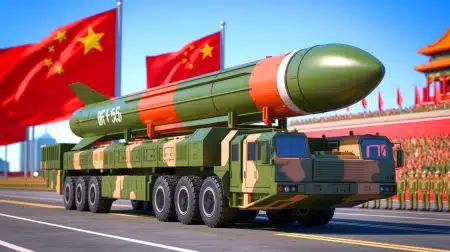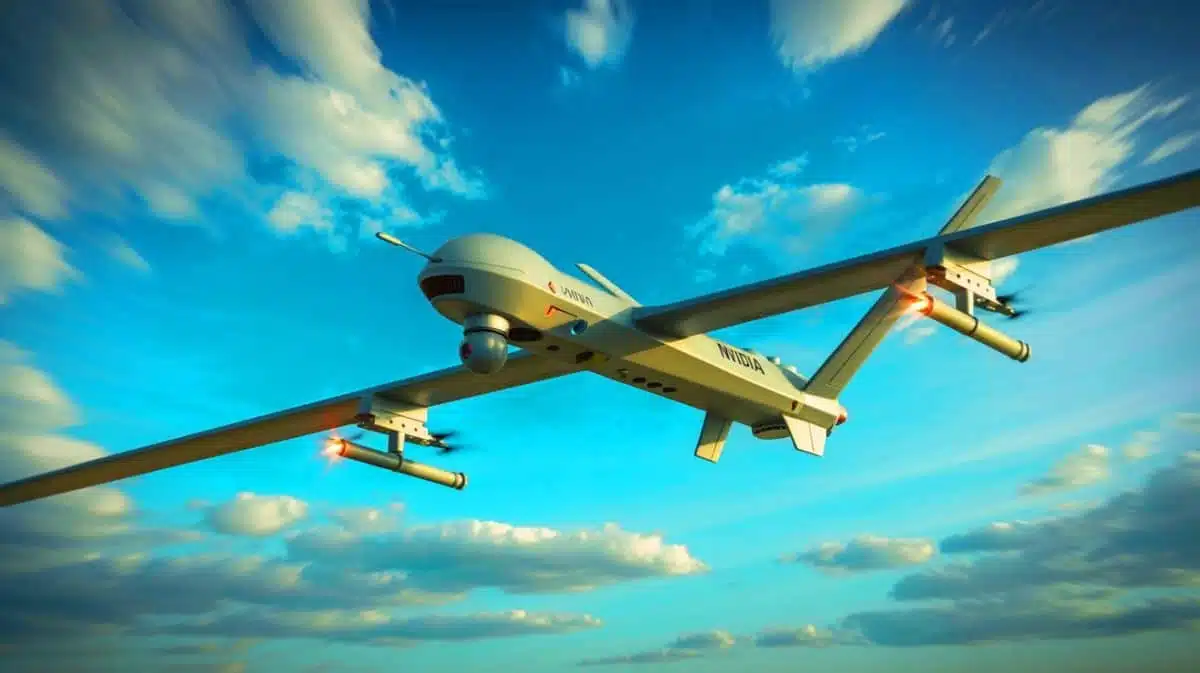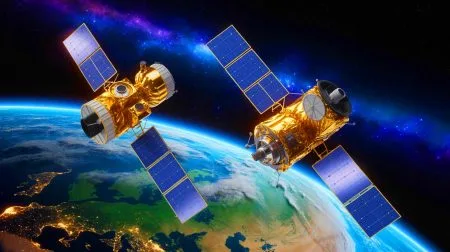| IN A NUTSHELL |
|
In an unprecedented development in military technology, Russia has unveiled a new breed of drones that could reshape the future of warfare. These drones, powered by advanced AI supercomputers from Nvidia, are not just machines; they are autonomous predators capable of independent decision-making and adaptive targeting. As the battlefield continues to evolve, these drones symbolize a significant shift in military strategy, raising questions about the implications for global security and the future of human involvement in combat.
New ‘Digital Predator’ Drone
The MS001, Russia’s latest unmanned aerial vehicle, is unlike any traditional drone seen before. It operates autonomously, without the need for external commands, thanks to the cutting-edge Nvidia Jetson Orin supercomputer. This palm-sized AI module boasts a staggering 67 trillion operations per second, enabling the drone to process vast amounts of data in real-time. This capability allows the MS001 to autonomously detect, prioritize, and engage targets, even in the most challenging conditions like GPS jamming or electronic warfare.
The drone’s onboard systems include thermal imaging for night operations, a Nasir GPS module for spoof-resistant navigation, FPGA chips for adaptive logic, and a radio modem for telemetry and swarm coordination. These sophisticated components ensure that the MS001 can not only survive but thrive in electronic warfare environments. Moreover, its ability to function within coordinated swarms, sharing data and adjusting flight paths dynamically, presents a profound challenge to traditional air defense systems unprepared for such advanced threats.
Russia’s UAV Shift
Russia has strategically shifted its UAV deployment to focus on deep interdiction roles, targeting critical infrastructure and logistic chains far from the frontline. The MS001 is a technological marvel and a strategic game-changer, disrupting vulnerable nodes in both civilian and military infrastructures. Despite stringent sanctions aimed at curtailing Russia’s access to advanced technologies, the country has managed to acquire Nvidia components through gray-market channels, illustrating a remarkable resilience in the face of trade restrictions.
This shift in strategy and technology is emblematic of Russia’s broader approach to modern warfare, where disruption and strategic targeting take precedence over traditional combat roles. The MS001 is not just a leap in technology; it is a testament to the operationalization of AI in live combat, where autonomous decision-making and high resistance to electronic countermeasures redefine what is possible on the battlefield.
Tomorrow’s Combat AI
While Western nations develop and test their AI-powered military systems, Russia is already deploying them. This proactive approach gives Russia a significant advantage, as it integrates advanced technologies into cohesive and adaptive systems. Major General Klochkov aptly observed that Russia is field-testing “tomorrow’s combat AI” today, highlighting the urgency for other nations to accelerate their technological implementations.
The MS001 is not merely an upgrade of existing platforms; it signifies a doctrinal evolution from pre-programmed machines to autonomous entities capable of executing complex missions based on strategic intentions rather than direct orders. This shift underscores a new model of warfare where technological superiority and strategic foresight could determine the outcome of conflicts.
The Ethical and Strategic Implications
The introduction of autonomous drones like the MS001 raises profound ethical and strategic questions. As machines increasingly take on roles traditionally reserved for humans, the nature of warfare is fundamentally altered. The deployment of autonomous systems challenges current military doctrines and necessitates a reevaluation of ethical standards governing their use.
Moreover, the proliferation of such technology could trigger an arms race, prompting nations to rapidly develop and deploy their own autonomous systems. This raises concerns about accountability and the potential for unintended escalations in conflict. As we stand on the cusp of this new era in warfare, it is imperative to consider the long-term implications of integrating AI into military operations and to establish frameworks that ensure their responsible use.
As the world observes the rise of AI-powered military technology, one must ponder the future of warfare. Will human oversight remain a critical component, or will autonomous systems redefine the battlefield entirely? As nations grapple with these questions, the implications for global security and ethical warfare are more significant than ever. What does the future hold for military strategy in an age where machines make their own decisions?
Did you like it? 4.4/5 (26)







Wow, this sounds like something out of a sci-fi movie! Are we entering a new era of warfare? 🤔
How does the MS001 compare to US drones like the MQ-9 Reaper in terms of capabilities?
I’m skeptical about how effective these drones can be in real-world combat. Anyone have insights?
Interesting article, but what are the ethical implications of using AI in warfare?
Thank you for the detailed breakdown! The future of warfare is both exciting and terrifying. 😬
Can you imagine a sky full of these drones? Sounds like a nightmare! 😱
How do they ensure these drones don’t malfunction and target the wrong things?
This is both fascinating and concerning. What happens if this technology falls into the wrong hands?